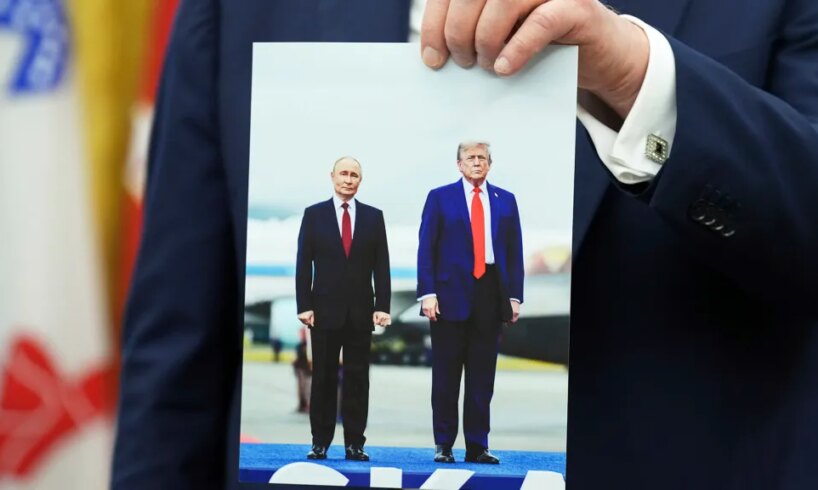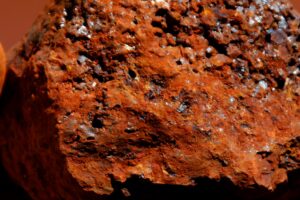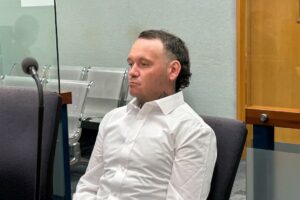
We’ve witnessed the final triumph of X’s hot-takes culture in how legacy media talks about international, and national, security.
Readers have been inundated with months of over-eager “whatever will Trump think about Albo?” speculative tittering, feeding into the political media’s enduring fascination with when (or whether) the two will meet.
Since the government recognised the state of Palestine, we’ve also had to endure puffed-up media outrage over people affiliated with Hamas’ “welcoming” of it, as well as a personalising of Israel Prime Minister Benjamin Netanyahu’s inevitable pushback, using the right’s favourite tag of Albanese as “weak” (a commentary applauded by The Australian as both “blistering” and “extraordinary”).
Not to be left behind, the Nine mastheads had an “insider” from the US international relations blob dismissing the recognition with a particular right-wing term of abuse, calling it “virtue signalling” (originally dropped into digital usage courtesy of the Brexiteering Spectator in 2015).
What didn’t we get? Any analysis of what the recognition actually means — either as part of Australia’s attitudes to the Middle East, or how or whether it reflects a creaking turn away from the US first-last-and-always approach of the former Liberal government — still staunchly upheld by their media wing, the Delaware-based News Corp.
Independent. Irreverent. In your inbox
Get the headlines they don’t want you to read. Sign up to Crikey’s free newsletters for fearless reporting, sharp analysis, and a touch of chaos
By continuing, you agree to our Terms & Conditions and Privacy Policy.
Related Article Block Placeholder
Article ID: 1218991
From Trump to Netanyahu, the rhetoric of hot-takes is culture wars by other means, a stand-in for diplomatic exchanges that helps advance the interests of the global populist right. Such rhetoric is inflammatory enough to play news media into considering it newsworthy and social platforms into sending it viral, hot enough to pander to their radicalising base and jokey enough to be waved off with a “take it seriously, not literally” defence.
It’s degrading public debate by design and encouraging a profound misreading of how the rise of transnational networks of populist authoritarianism, corruption and mafia states is creating a crisis of democracy.
The instant gratification of the hot-take, of ever-escalating personalised insults pumped through legacy media’s virtual front pages, is overwhelming the sober deliberations — which earlier generations of national security reporters and analysts used to deliver — that we need to deal with the crisis of the current moment.
The new discourse has its own peculiarities, shaped by the slang and memes of an online culture bent to the right by the slanted algorithmic rewards of social media platforms, particularly since the “anti-woke” remaking of Twitter into X under Elon Musk, and the weaponised bots and trolls of anti-democratic state actors.
The result is a rhetoric that replaces truth with bullshit (in the technical political science sense of the word). It turns legacy media’s “objectivity” or “impartiality” back against itself, forcing US news media to amplify the hot-takes, with the platforms rewarding them with likes and links. And as US media reporting brings legitimacy, so Australia’s media follows on.
Related Article Block Placeholder
Article ID: 1218514
To avoid attacks of bias from the authoritarian right, legacy media substitutes celebrity reporting for political news — suddenly, global issues or war and peace are all about relations between leaders. A pop psycho-analysis of “great men” has replaced the hard grind of understanding the institutional politics of clashing interests and intentions.
The reputationally austere NATO secretary general, Mark Rutte, went the furthest (in a Freudian sense at least) with his nodding to the patriarchal authority of “Daddy” Trump. But there’s plenty of “Dear Abby”-style relationship advice in Australia’s media for Anthony of Marrickville on how he should manage the US president.
The news we need is not what a handful of individuals say they feel or think. It’s their actions, interests and apparent intentions, as well as those of the people and organisations around them. In that context, we can better understand, for example, that the Alaska summit was about engineering a Russia-friendly outcome to the war — or, at least, shifting the global debate along to make that outcome more likely — than it was about Trump’s apparent narcissistic desire for a Nobel Prize.
That means reaching beyond the legacy media’s reporting, particularly the US billionaire-owned media whose corporate self-interest demands they nod along to the pretence that Trump is politics as usual — just a bit more so. It calls for a journalism that puts reporting about the world in the context of the global democratic and human rights crisis that the killings in Gaza and the invasion of Ukraine represent.





